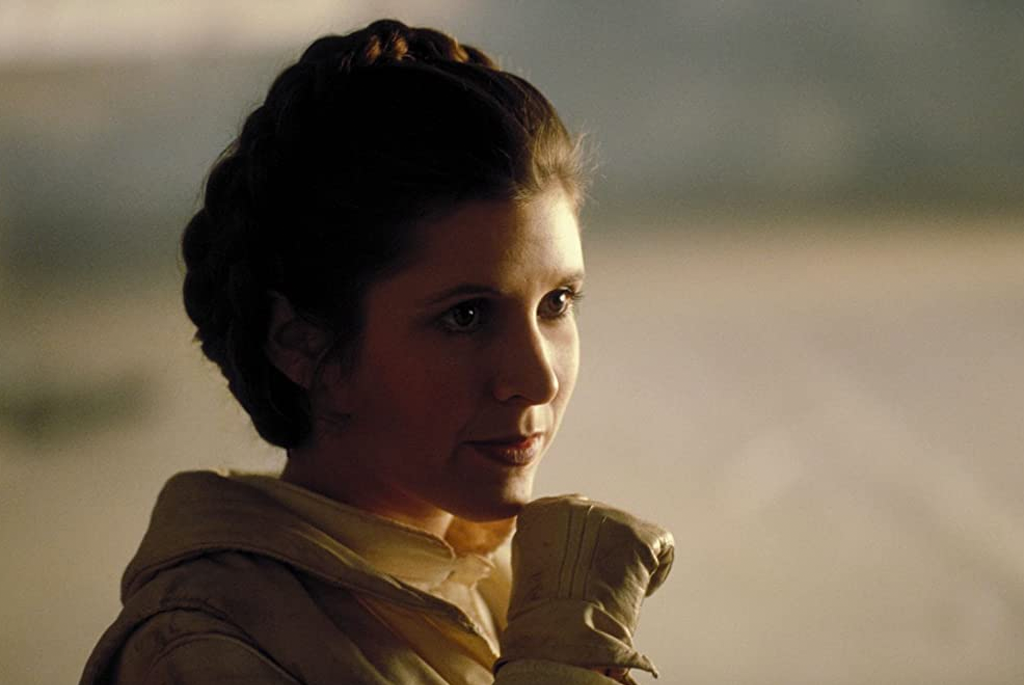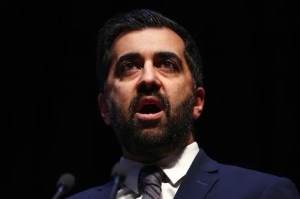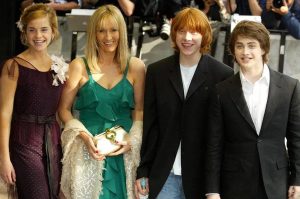‘I’m sitting here struggling for words and my friend nailed it: “She was our Princess Leia.”’ With those words, Dr Esther Choo, Yale Medical School graduate, holder of an Ivy League English diploma and possessor of 168,000 Twitter followers, memorialized the life of Supreme Court Justice Ruth Bader Ginsburg.
A century ago, a citizen of Justice Ginsburg’s stature might have inspired references to the Bible, classical history or the great figures of America’s founding. But in the year 2020, a lifetime of achievement brings no greater honor than to be compared with a Disney-owned property whose action figure you can buy for $10.99.
So great was Justice Ginsburg’s prestige, though, that she was analogized to many different Disney properties. ‘I started crying and my kids were like, “What happened, mom?”’ wrote technology CEO Sima Sistani. ‘I tell them a hero died. My son says, you mean like Iron Man? I said no, like Wonder Woman.’
Actor Jim Carrey wondered if ‘she’ll be like the spirit of Obi-Wan in our battle to defeat the Death Star’. The lowest point of all came when a mother claimed her sobbing 10-year-old daughter made the Wakanda pose from Marvel’s Black Panther movie and said ‘Ruthkanda forever’. It was ridiculous and obviously made up, but religious movements have always produced pious frauds.
For the past four years, the popular mobilization against Donald Trump has not relied on the West’s most enduring moral lodestars but on its most recent and transient. Adults have earnestly chosen to understand the world through the prism of superheroes, wizards and Jedi knights.
The 2017 Women’s March used Princess Leia as a symbol. When Consumer Financial Protection Bureau employees decided to sabotage their Trump-appointed boss, they called themselves ‘Dumbledore’s Army’, a boarding-school resistance group in J.K. Rowling’s Harry Potter universe. Just hours after Hillary Clinton’s defeat in 2016, Hamilton creator Lin-Manuel Miranda rallied the left by tweeting ‘Order of the Phoenix, mount up’, again in reference to Potter.
Trump has been compared to Potter nemesis Lord Voldemort ad nauseam. A consistent feature of these comparisons is how little sense they make. Lord Voldemort is an intellectual prodigy from a humble background. Trump is a scion of wealth hardly known for his scholarship. Voldemort is quiet, hairless and pale; Trump is loud, hairful and orange. The only similarity is that, for a certain set of young adults, the two figures are great pinnacles of pure evil.
What drives this trend? A common culprit is the broader secularization of society. Decline in religious affiliation hasn’t obviated the need for a sense of good and evil. Shorn of the traditional structure provided by faith, young Americans grasp at the narratives available to them via Netflix and library shelves. This theory is bolstered by the religious reverence given to the Potter books in particular. The podcast Harry Potter and the Sacred Text, effectively a Bible study for would-be witches and wizards, is nearing its 250th episode.
A more immediate cause may be the cultural revolution remaking America itself. The woke moment teaches that America’s historical heroes are no longer heroic. The dictates of multiculturalism mean that the old canon, much of it created by dead white males, is no longer canonical. In its place has come a new canon from young-adult pop culture. The only works well known enough to command widespread allegiance are children’s books simple enough that even the alumni of American public schools can read them, and the blockbuster superhero franchises that dominate Hollywood.
When young-adult entertainment takes the place of sacred scripture, its moral purity becomes paramount. Traditionally, it has been a sign of maturity to be able to divorce an author from his work. George Bernard Shaw could write a thousand pamphlets endorsing socialism, atheism or Mussolini, and it never seriously endangered his popularity as a playwright.
J.K. Rowling doesn’t enjoy the same privilege. She has recently gained notoriety as one of the only celebrities willing to say that biological sex is real and that a man who wants to be a woman does not automatically become one. In young-adult literature, standing up for unpopular beliefs is praiseworthy, but for the people who read it, doing so in real life is the opposite. The Potter fandom has responded by canceling Rowling. Top fan websites aren’t just purging Rowling’s image, but turning her into She Who Must Not Be Named. Fans have committed to referring to her as ‘#JKR’, so those who wish to can block the hashtag. Rowling has, in essence, been labeled a heretic by the religion she founded.
Rowling is lucky that her books already exist. In young-adult publishing, it’s now routine for authors to be denounced and their books canceled because of perceived ideological offenses. When such a climate prevails, what hope is there for new enduring classics to be produced? Investing pop culture with moral and political meaning doesn’t just hurt art, though. It actively warps politics itself.
In this dumbed-down moral universe, works aimed at young adults have become a self-reinforcement mechanism. In Harry Potter world, the chief moral threat is magical racism, and this racism has a simple cause: wicked people hate those unlike them for no reason. Such simple framing may be fine for entertaining a fifth-grader. But when the Potter books are the favorites of millions of young adults, is it any surprise they grow up assuming racism is a threat lurking everywhere and political opponents are evil rather than merely wrong?
As silly as it is, understanding the world solely through juvenile dystopias and PG-13 cinema carries its own sort of power. Morality is as simple as Google’s old motto: ‘Don’t be evil.’ Right and wrong are easily deduced, and the wrong are so cartoonishly wicked that to give them any quarter is to permanently forfeit moral credibility. Being a zealot is easier than ever before.
When one’s political opponents are on a par with literal supervillains and dark lords of the Sith, all considerations of civility, fair play, hypocrisy and more fall by the wayside. All sense of scale is lost, too. A coworker’s off-color joke is at least as bad as Thanos destroying half the universe. A parent voting for Trump is the most sinister betrayal since Peter Pettigrew became a Death Eater, and cutting all contact is a reasonable response. As America’s moral universe grows more childlike, its political behavior grows more vicious.
This article was originally published in The Spectator’s November 2020 US edition.


















